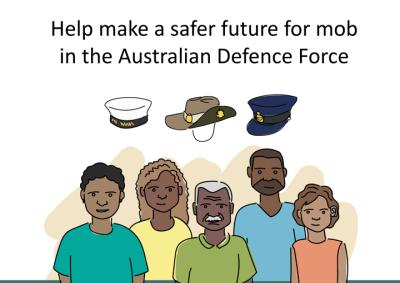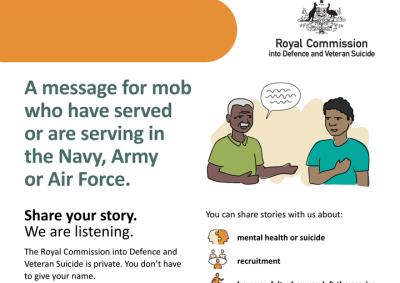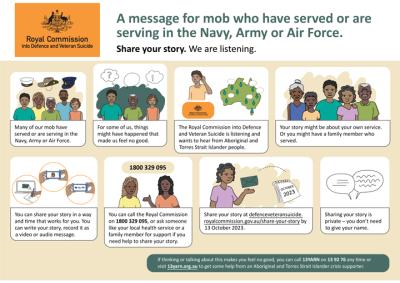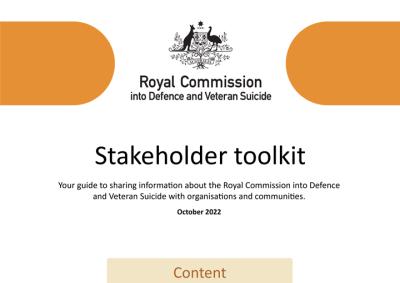Video Transcript – What the Royal Commission is and why it's important
Many of our mob have served or are serving in the Navy, Army or Air Force.
For some of us, things might have happened that made us feel no good or worried.
A Royal Commission into Defence and Veteran Suicide is happening now.
The Royal Commission is a group of people, the Commissioners, who are listening to people around the country about what has happened to them in the Navy, Army or Air Force.
They also want to hear from family who have been affected.
It could be about suicide or it might be about mental health, recruitment, or how you felt when you left the service.
Sharing your story could help improve mental health and help stop suicide among people in the Defence Force. It can help other Aboriginal and Torres Strait Islander people by creating a safer future for people in the Navy, Army or Air Force.
To find out how you can share your story with the Royal Commission, call 1800 329 095 or visit defenceveteransuicide.royalcommission.gov.au
If thinking or talking about this makes you feel no good, you can call 13 Yarn or 13 92 76 or visit 13yarn.org.au to get some help from an Aboriginal and Torres Strait Islander crisis supporter.




